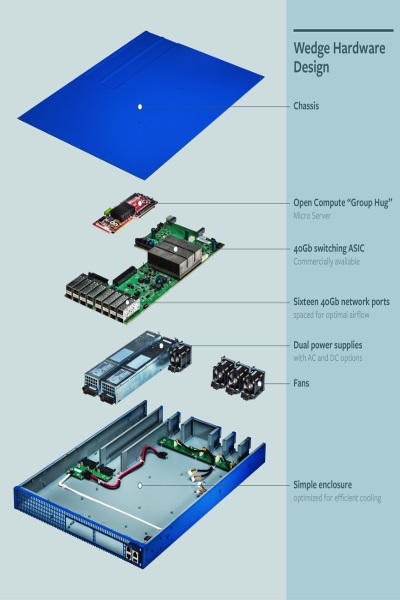By 2019, more than a quarter of all switch ports will be sold in open hardware
<.! -. post-summary ->
 The switches without operating system, or” bare metal “, capable of programming such as Linux, are no longer just for large Internet companies. In the coming years, tend to be part of the average network infrastructure of many companies.
The switches without operating system, or” bare metal “, capable of programming such as Linux, are no longer just for large Internet companies. In the coming years, tend to be part of the average network infrastructure of many companies.
Service providers based on cloud computing, such as Facebook and Google have developed their networks within the centers data with generic hardware and software produced in-house for years. Currently, several vendors such as HP and Dell, begin to sell switches as the servers “bare-metal”.
You can even pre-load an operating system and provide ongoing support, but the software is open . And customers will have much more freedom with this new type of hardware than with traditional switches from manufacturers such as Cisco Systems.
There are more IT departementos willing to accept this proposition now that can do it benefiting a brand with which they are familiar, according to Cliff Grossner, Infonetics Research. By 2019, just over a quarter of all switch ports for data centers will be sold in “bare-metal” devices, says Grossner.
This growth will come from smaller cloud computing providers and companies of all sizes, Grossner said. Most of the big players in the Internet have already adopted the new approach, so there should not be a huge growth in this area.
The main reason for companies to start to buy switches “bare-metal” in the coming years is the possibility of being able to set them to do hows Linux servers, says Cliff Gossner (Infonetics Research).
These pioneers are so great that respond for almost all deployments switches “bare-metal” in respect of 11% percent of all data center switch ports. The new class of switches marks a major change in networking.
Although a significant proportion of servers already is hardware-based, x86 technology, and running Linux, most network switches and uses chips proprietary operating systems. While IT developers can modify the Linux source code on servers, network engineers configure conventional switches using specific tools such as command-line interfaces (Comand Line Interface – CLI).
main reason for companies to start buying “bare-metal” switches in the coming years is the possibility of being able to program them as they do with Linux servers, Grossner said. “When you have a closed box with a CLI, do not have complete flexibility,” he said.
And, most importantly, want to make the switches of the automated structure of data center orchestration for tasks how to put funciomenamento running servers, storage unit and switching together. Equipment providers can even provide the API for your device work with the other data center, but guests have to wait for the vendor to supply these API, he said.
Economics are important
Other companies should stick with the tried and consolidated network software, but can put it in less expensive switches, Grossner said. The rival Cisco, Juniper Networks announced last year that would make your Junos software, available in a switch with open-source hardware.
The savings can be significant. Last year, the average selling price of 40 Gigabit Ethernet port 10-Gigabit and was 308 dollars, while the price of hardware “bare-metal” was $ 112, according to Infonetics.
The open hardware will help bring the cost of these doors to even lower levels over the next four years, provides Grossner. It also allows to reduce operating costs as the management.
No comments:
Post a Comment